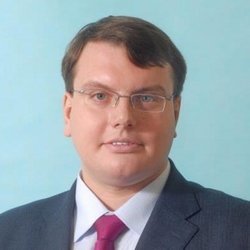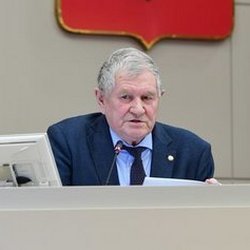“This policy is justified. That's what smart enterprises do”: Kazanorgsintez creating safety cushion for itself
The company has summed up the financial results of the turbulent first quarter of this year
These are difficult times for the global chemical industry: production volumes have fallen by 4,2% because of the COVID-19 pandemic Enterprises in China and Europe have reduced output in February and March In Russia, the chemical industry continued to produce and even showed growth. The continuous cycle enterprise Kazanorgsintez also continued to operate. Moreover, it tries to protect itself financially due to global trends.
How to feel confident after the crisis
Kazanorgsintez PJSC has published its financial statements for the first quarter of 2020. As of March 31, Kazanorgsintez's revenue was 16,2 billion rubles. The company's assets in the first quarter totalled 72,3 billion rubles and increased by 1,8 billion compared to the previous quarter.
However, the coronavirus pandemic has affected all sectors of the economy. The petrochemical industry is no exception. Besides, the consequences of the collapse in oil prices are expected, as polymers, for example, are already falling in price. However, some experts do not link these events:

According to Rosstat, the production of propylene polymers in primary forms in January-March increased by 40% compared to the same period last year. The roduction of ethylene in primary forms — by 45%, and polyethylene — by 63%. “Factories would not produce more if there was no demand, that is, the production this year has grown 1,5 times on average. With the coronavirus pandemic, the demand for polyethylene and packaging has grown — no one will even take an unpackaged product in their hands," Kalachev explained.
At the same time, as follows from the reports of the chemical enterprise, against the background of the crisis phenomena of the beginning of 2020, Kazanorgsintez is creating a safety cushion for itself. This can be seen in the indicator of retained earnings. In the first three months of this year, it amounted to 63,6 billion rubles, which is almost 2 billion more than in the previous quarter. Cash from current assets also increased to 9,2 billion rubles.

“In any case, this policy is justified. That's what smart businesses do. In the last crisis, steelmakers very successfully accumulated a cushion, reduced debts to almost zero. On the next cycle, they felt very good and confident. Therefore, safety cushion, of course, never hurts. Especially if you have to expand or modernize production, and the ruble has weakened, problems with loans," added Aleksey Kalachev.
Strong results of conservative financial policy
This decision reflects the company's conservative financial policy, which was evaluated by Fitch Ratings in March. It noted that the issuer default rating of PJSC Kazanorgsintez reached B+. The company's forecast was given “stable”. The agency also drew attention to that the company maintains a convenient ratio of its own funds and credit ones. It is predicted that this will be possible even in the conditions of falling world prices for polyethylene and the beginning of a new investment stage at Kazanorgsintez.
“The problems caused by the coronavirus will probably have an impact in the second quarter of the year. Besides, oil prices collapsed by the end of the first quarter, in March. Nevertheless, I think that the activity in the polymer market will grow, and I hope that everything will quickly recover. Another thing is that the Russian market, relatively speaking, is more closed and self-sufficient, and everything is relatively good here. The situation on export markets will be determined by the development of the coronavirus pandemic in the world," said Vasily Tanurkov.
At the beginning of spring, Fitch identified risks for Kazanorgsintez related to the chemical raw materials markets as well as the relatively small size of the company in comparison with competitors from Europe, the Middle East and Africa as the main limiting factors for the rating.

Inverse situation on the world market
The production of Kazanorgsintez is associated with trends in world markets, which have been seriously affected by the situation with coronavirus since January this year. In Russia, chemical companies that belong to continuous-cycle production did not stop working due to the threat of COVID-19.
The inverse situation has developed on the world market. The American Chemistry Council (ACC) notes that in March the global chemical industry reduced production by 4,2%. The decline began in January with the spread of coronavirus in Europe and Asia.
The largest decline occurred in China, where businesses were minimally loaded or halted production in February and March. In the US, the drop in chemical production decreased by 2,4% compared to March 2019, in Europe — by 2,2%. In March, relative to February, European countries recorded a 0,1% increase in productivity.

The American Chemistry Council notes that Russia and the CIS countries, where the spread of the infection began closer to the middle of March, showed an increase in production volumes by 5,9% in a month. According to Russian state statistics, in March, the index of chemical production increased by 8,1% compared to the same indicator in 2019. At the end of the quarter, Rosstat recorded an increase of 6,7%.